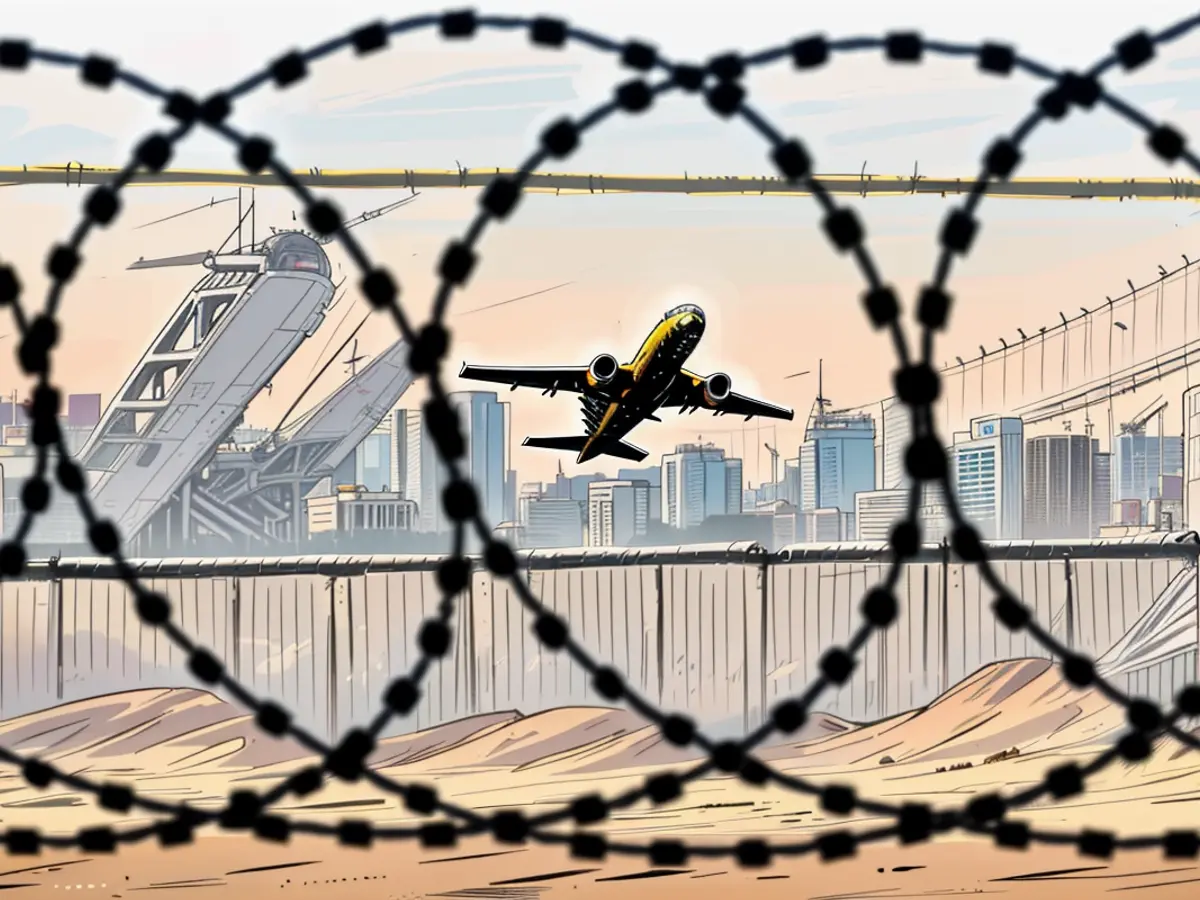Migration - Saxony-Anhalt pays for voluntary departures itself
Due to a processing backlog at the Federal Office for Migration and Refugees (Bamf) for voluntary departures of asylum applicants, Saxony-Anhalt is currently covering the costs itself. "The processing by the Bamf is currently marked by significant delays," a spokeswoman for the Interior Ministry in Magdeburg stated in response to an inquiry. Nationwide, more than 5000 applications for the promotion of voluntary departures through the Bamf have not been decided upon yet.
According to information from "Spiegel," which reported on this first, nearly 2000 rejected asylum applicants are waiting for a promotion of their voluntary departure. The Federal Office for Migration and Refugees in Nuremberg confirmed that there is a backlog due to a high number of applications, but did not provide any figures. The departure volunteers can leave the country at any time.
Saxony-Anhalt has decided to temporarily take over the funding of departures since early June. This interim measure, according to the Interior Ministry, initially lasts until the end of August. It mainly concerns the assumption of travel costs and certain countries of origin such as the Western Balkan states, Georgia, Moldova, and Turkey. Voluntary departure can usually be done more quickly than deportation. It is also in the economic interest of the state, as significant costs can be saved, for example for accommodation and other benefits.
The program for voluntary departure was previously administered by the UN organization IOM up to the beginning of this year. The transfer to the Federal Office for Migration took place in January. According to "Spiegel" information, the authorities in the federal states have so far waited approximately 2 to 6 weeks for a decision - since the Bamf is responsible, it should reportedly take 8 to 15 weeks.
Saxony-Anhalt increases number of departures and expulsions
According to the Interior Ministry's statements, costs for voluntary departures in the state amounted to around 754,000 euros last year. A total of 473 voluntary departures took place. In the same period this year (as of the end of May), there had been 206 voluntary departures. In the same period in the previous year, there had reportedly been 178 voluntary departures.
The number of expulsions has also increased in Saxony-Anhalt. By the beginning of the month, almost 300 expulsion-eligible persons had been expelled. According to the Foreigners' Register, a total of 5226 expulsion-eligible persons are registered.
- The backlog in voluntary departure applications at the Federal Office for Migration and Refugees (Bamf) in Nuremberg has prompted Saxony-Anhalt to cover the costs themselves for asylum seekers, as reported by the Interior Ministry in Magdeburg.
- The Federal Office for Migration and Refugees (Bamf) in Magdeburg, responsible for handling voluntary departure applications, is currently experiencing significant delays, leading to a processing backlog for over 5000 applications nationwide.
- The Federal Office for Migration and Refugees (Bamf) in Saxony-Anhalt has taken over the administration of the voluntary departure program from the UN organization IOM since January, leading to a reported wait time of 2 to 6 weeks for a decision on applications.
- The Federal Office for Migration and Refugees (Bamf) in Germany offers a voluntary departure program, which enables asylum seekers to leave the country at their own expense, as an alternative to forced deportations in certain countries such as the Western Balkan states, Georgia, Moldova, and Turkey.








